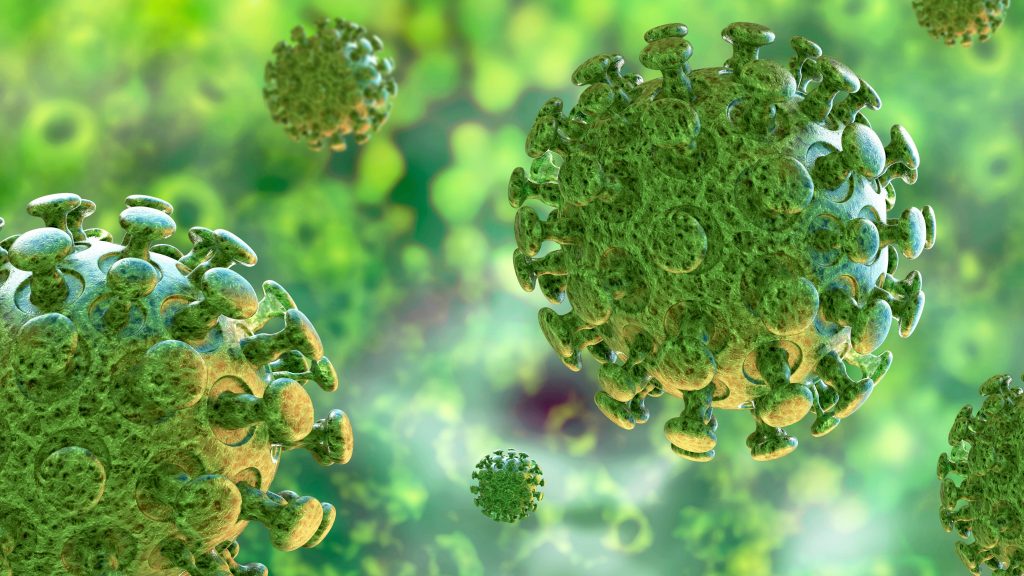-
Featured News
How the virus that causes COVID-19 differs from other coronaviruses

Coronaviruses are a family of viruses that can cause illnesses such as the common cold, severe acute respiratory syndrome (SARS) and Middle East respiratory syndrome (MERS). So what makes those coronaviruses different from SARS-CoV-2, the virus that causes COVID-19? Dr. Clayton Cowl, a pulmonologist and chair of Mayo Clinic's Division of Preventive, Occupational and Aerospace Medicine, says that SARS-CoV-2 shares both similarities and differences with other coronaviruses.
"The name 'coronavirus' has to do with what the virus looks like under a microscope," says Dr. Cowl. "'Corona' means crown. All coronaviruses have a similar structure. They are also 'enveloped' viruses, which means they are able to stick to surfaces, but are also able to be killed with disinfectants. The novel virus that causes COVID-19 is one-nine hundredth of a width of a piece of hair."
Journalists: Broadcast-quality sound bites with Dr. Cowl are in the downloads at the end of the post. Please courtesy "Clayton T. Cowl, M.D. / Preventive, Occupational and Aerospace Medicine / Mayo Clinic."
Why is the virus that causes COVID-19 is novel?
"The virus is called 'novel' because it started with an animal population, was transmitted to a human and now can go from human to human. Our immune systems have never seen this particular strain of virus before, so we haven't developed immunity. We don't have a vaccine for it at this point. And similar to many of the other novel viruses, it has potential for worldwide distribution. We've seen this with the Middle East virus (MERS), with SARS and other viruses that we've heard about over time."
Is COVID-19 more contagious that other coronaviruses?
Dr. Cowl says that SARS-CoV-2 is likely more contagious than the viruses that cause influenza and common cold because it is new to humans. Humans have no way to prepare for it, and their immune systems are not ready to fight it. This results in the virus causing more cellular damage and producing more inflammatory cells. For people with decreased immunity, due to medications, a specific condition, or from aging, the resulting COVID-19 disease is more serious.
Will COVID-19 become a seasonal problem like the flu?
Dr. Cowl says there is a lot not yet know about COVID-19, and how it will act in the future is uncertain. It's too early to know if it will evaporate like H1N1 or SARS, or remain at a low level for years. He says the focus now is to minimize the spread of the virus and to help patients who have it.
How can the spread of COVID-19 and other coronaviruses be prevented?
The spread of COVID-19 and other coronaviruses can be prevented by taking these steps:
- Stay at a distance of at least 6 feet from other people.
- Wash hands regularly with soap and water. If that's not possible, use hand sanitizer or disinfecting wipes.
- Avoid touching your face.
- Monitor daily for symptoms such as fever, cough and shortness of breath.
- Call your health care provider or local hospital if symptoms develop to see if you should be tested for COVID-19.
What are the symptoms of COVID-19 and the seasonal flu?
Symptoms of COVID-19 include:
- Fever
- Cough
- Shortness of breath
- Muscle aches
Symptoms of the seasonal flu include:
- Fever
- Cough
- Headache
- Runny nose
- Muscle aches
Check the Centers for disease Control and Prevention website for additional updates on COVID-19. For more information and all your COVID-19 coverage, go to the Mayo Clinic News Network and mayoclinic.org.
Related Articles







